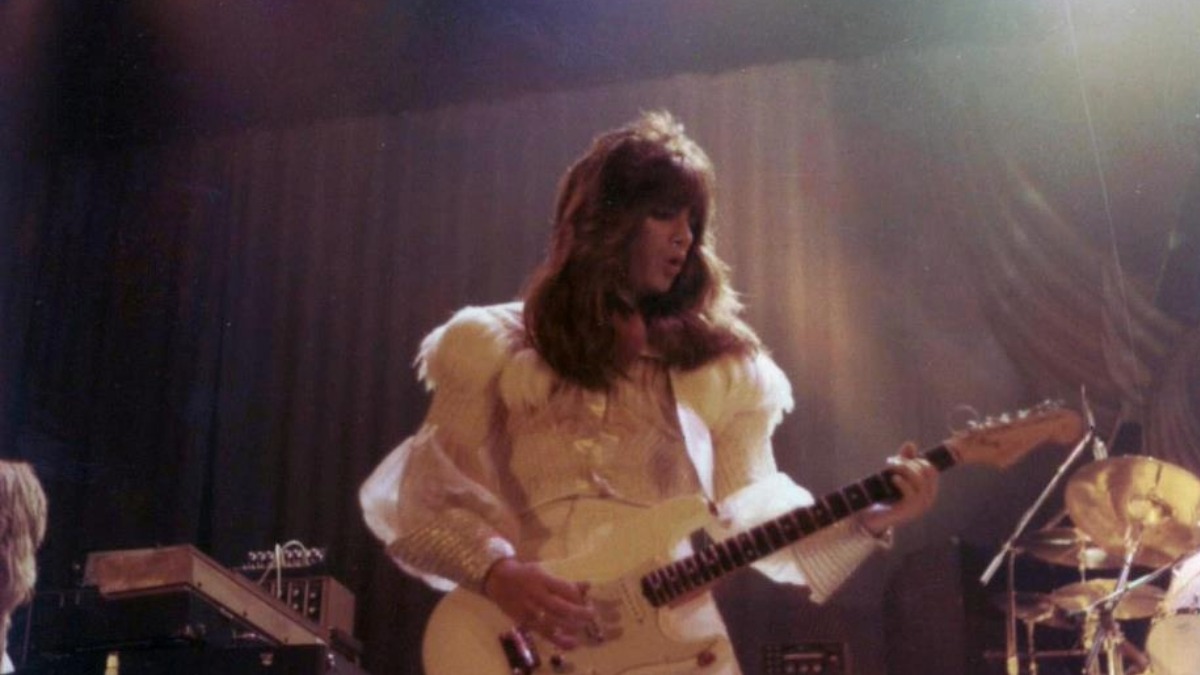“Mötley Crüe was a whole different animal from what I’m doing. Writing the anthems was what the band was all about. Then it got a little sideways…” Mick Mars opens up on the highs and lows of life in Mötley Crüe – and his solo rebirth
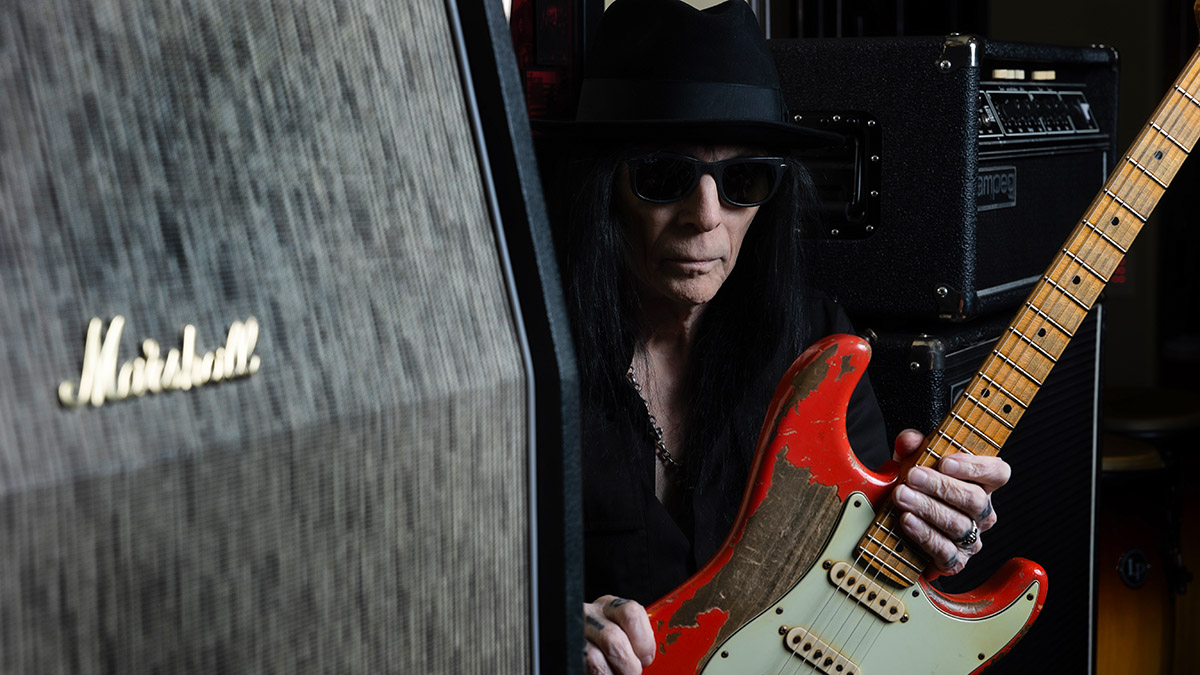
All the latest guitar news, interviews, lessons, reviews, deals and more, direct to your inbox!
You are now subscribed
Your newsletter sign-up was successful
You don’t start a conversation with Mick Mars by asking, “How are you?” It comes out more like, “How are you?” He’s used to it. Ever since the guitarist went public in 2001 with his decades-long battle with ankylosing spondylitis – a pernicious, inflammatory form of arthritis in which the vertebrae grow together and fuse the spine – he’s become accustomed to discussing the state of his health.
“I actually feel pretty good,” he says. Speaking via Zoom from his home in Nashville, Mars sits in a chair and his body is rigid; he’s lost most of the mobility in his spine and has a pronounced head-forward posture. His arms and hands, however, are completely unaffected; he waves them around freely and frequently.
He looks frail and almost ghost white, but the truth is, he’s never been the robust sort. “The condition has progressed,” he says matter-of-factly. “Most of the pain nowadays is in my neck, my head and my hips. When I walk, it feels like I’ve got a cinder block on my head.” He smiles a tight-lipped smile. “I deal with it. I have to.”
Mars wasn’t exactly a spring chicken when he hit it big with Mötley Crüe. By the time the band released their breakthrough album, Shout at the Devil, in 1983, he was 32, making him the elder statesman among his young-buck bandmates.
He’s 72 now and has finally gotten around to recording the debut solo album he’s talked about for the past 20 years.
I mention to him a chat we had in a Portland, Maine, dressing room in 2005 during the Crüe’s Carnival of Sins reunion tour. Sunk into a black leather couch, he laid out his plans to mix the blues with African rhythms while using multiple drummers on the same song. There would be horn sections, too, he said; the music would be as far-and-away different from Mötley Crüe as could be.
Musicians are always talking about how they want to do something different, blah, blah, blah. I’m just trying to create what I hear in my noggin, and I’m open to a lot of things
“I remember that conversation,” he says, “talking about flying to Africa just to hear somebody beatin’ on logs. I think that’s still a possibility. Musicians are always talking about how they want to do something different, blah, blah, blah. I’m just trying to create what I hear in my noggin, and I’m open to a lot of things.
All the latest guitar news, interviews, lessons, reviews, deals and more, direct to your inbox!
“I haven’t really flown around and searched for things, but I intend to. There’s some stuff I’m writing now that would sound good with saxophones – not like the band Chicago, although I love them. Always have.”
Much of the music that Mars did eventually record for the album that would become The Other Side of Mars is pummeling metal and anthemic hard rock that he co-wrote with fellow Nashville resident Paul Taylor, a former member of Winger and Alice Cooper’s touring band.
The guitarist surrounded himself with a new core of players – bassist Chris Collier and Korn drummer Ray Luzier, along with two vocalists, Jacob Bunton and Brion Gamboa – but in choosing a co-producer and engineer, he reached out to a key figure from his past: Michael Wagener, the German metal specialist who engineered and mixed the Crüe’s 1981 debut, Too Fast for Love.
“It was funny how I wound up working with Michael,” Mars says. “I wrote to him and asked if he knew anybody to help me engineer, and he wrote back, ‘Will I do?’ I said, ‘Of course!’ He introduced me to Paul Taylor, and everything started falling into place. We did everything at my house. I’ve got Pro Tools and a ton of stuff.” He chuckles. “I call my studio the Dungeon because I’ve got this big dungeon door on it.”
The music sounds like it came from inside a dungeon. Mars’ guitar tone is rude and sinister throughout the album, which includes thrashy rockers (Ain’t Goin’ Back Again), heavy riff bangers (Broken on the Inside), doomsday grinders (Ready to Roll) and ominous power ballads (Alone). As one might expect, there are boatloads of teeth-gnashing solos.
The angst-ridden mood changes dramatically on two cuts: the piano-driven ballad Memories is laced with violins and violas, and the lone instrumental, LA Noir, evokes the steamy, sin-soaked aura of the 1980s Sunset Strip scene from Mars’ past life.
One could make the case that the guitarist responsible for good-time anthems like Girls, Girls, Girls and Don’t Go Away Mad (Just Go Away) was in a foul state while recording his new tunes – an assessment Mars doesn’t entirely dispute.
“I was thinking about a lot of things that bothered me,” he says. He points to the stinging single Loyal to the Lie and says, “Look at Charles Manson, Jim Jones and David Koresh – how can people fall for this stuff? You wind up either dead or mentally fucked up. It’s frustrating that people believe this crap, and it’s all lies.”
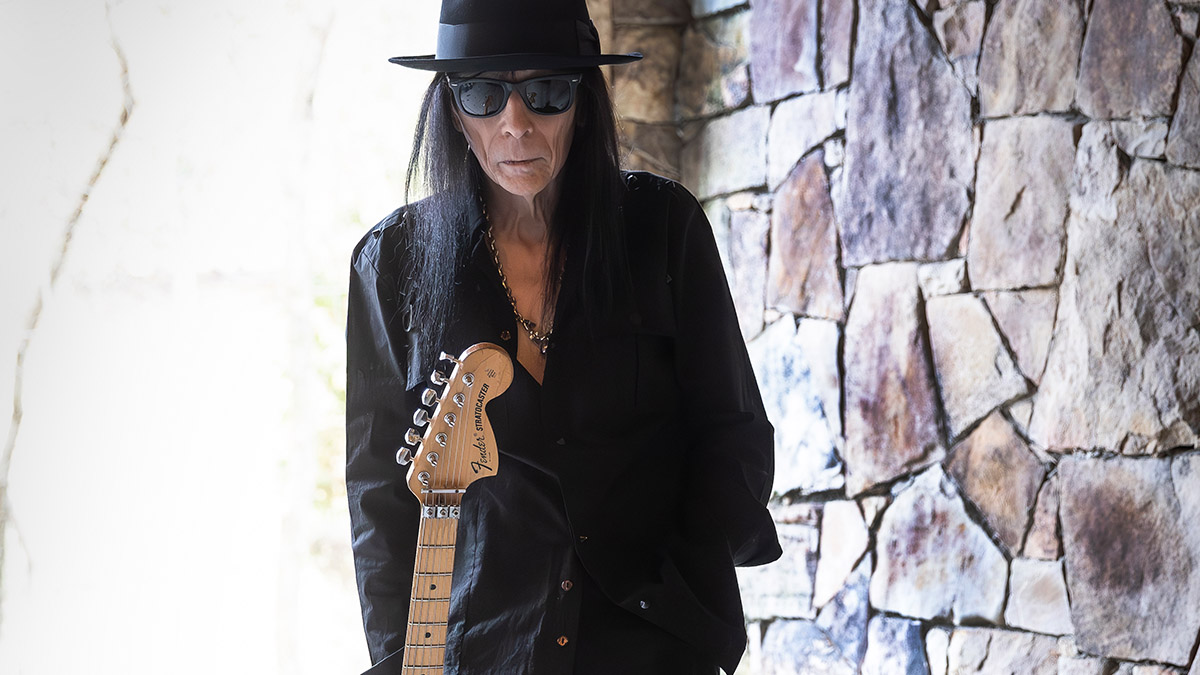
To the best of his recollection, he never played any of these song ideas for the guys in Mötley Crüe. “Without trying to be the butt man of anything, I was kind of left out of a lot of the band’s writing right after [1989’s] Dr. Feelgood,” he says. “When Generation Swine came out [1997], I was pretty much omitted – and New Tattoo [2000].”
Understandably, the subject of the Crüe hangs around like an elephant in the room. Mars announced his retirement from touring with the band in October 2022, and John 5 was recruited to step in.
Months later, the situation turned ugly. Mars sued the band, alleging that they had attempted to divest him as a major stakeholder in the group’s corporation and business holdings. Directly afterward, an attorney for the Crüe maintained that Mars’ decision to cease touring amounted to quitting the band outright, a contention that Mars disputed.
Since then, accusations have flown back and forth in the press between both sides about miming to tapes in concert – an issue that Mars is now reluctant to take up.
“I can’t do that because of a gag order,” he says, then clarifies: “I don’t have a gag order, but it’s like anything you say can and will be used against you. I have to be pretty cautious about what I say because it could be relevant to what’s going on.” Similarly, when asked if he stands by his lawsuit assertion that Nikki Sixx “gaslit” him about his guitar playing abilities, Mars tenses up and says, “I can’t comment on that. Sorry, you know how it is.”
I don’t have a gag order, but it’s like anything you say can and will be used against you. I have to be pretty cautious about what I say
On most other Crüe-related matters, he’s surprisingly candid and chatty – to a point. He’ll start to let it fly, but then a look comes over him and he becomes self-aware; it’s as if he’s asking himself, “Am I saying too much?”
He’s not the first musician to take his bandmates to court, but clearly the lawsuit is weighing on him. At one point, I ask him if he ever considered simply sitting down with the rest of the group to hash things out. “I would say it’s past… impossible,” he says with a slight, regretful smile.
He brightens when talking about the new music he’s making. “It’s like when you find a new love in your life – the thrill isn’t gone,” he says. “When I do stuff with Mötley, I know what Nikki wants. I know what Tommy’s hearing. We sort of mash it together. Working with new guys, it’s new blood, new energy, and we’re trying to figure it out. It’s a refreshing vibe.”
You’ve often been lauded for your rich, powerful guitar tone. Is that something you can just dial up?
“I’m glad you asked about that because a lot of people think tone comes from your amps. Mostly, it’s in your hands. How can I describe it? I don’t know the way it works. I could play through a different amp, but the tone you hear is from my hands. If you had put Eddie Van Halen through different amps, you’ll still hear his tone; it came from him.”
The album is very aggressive and dark. You’ve talked about your influences quite a bit – people like Hendrix, Beck, Clapton and Michael Bloomfield. Did you ever record that kind of stuff?
“Not more blues-oriented songs. I wrote these songs when I had the blues, so I guess they’re blues songs – the dark side of the blues. [Laughs] I was thinking about that because I get texts from people like, ‘Hey, I wanted to hear some blues.’ You never know – maybe I’ll add a Paul Butterfield-type song, like when they did The Resurrection of Pigboy Crabshaw [1967], some really cool stuff and tight horns. I can go any way I want.”
Did you think that would be too much of a left curve for your old Crüe fans?
“I think Mick Mars fans understand that I love the blues, and I think a lot of them were expecting a blues record. I don’t know; I had to do something a little more than that.”
On Killing Breed, your use of the whammy bar is quite melodic. You’ve been known to go all sorts of ways with a whammy – sometimes heavy gonzo, other times very light.
“Well, I love Jeff Beck, and boy, he knew how to use his whammy. He used it like a speaking voice or singing voice. Ritchie Blackmore uses a whammy and it sounds like it’s supposed to, but Beck, like I said, he made more like a voice. That’s how I hear it.”
Are we hearing a little bit of a Jeff Beck vibe in LA Noir? Those distorted jazz chords are reminiscent of his style.
“Yeah, maybe. I wrote that initial riff – the really sleazy, sleuth-y thing – maybe 20, 25 years ago. I’ve had it for the longest time. My album needed one more song, and I said, ‘Okay, just put that together,’ and that’s what came out.”
Do you think you might ever do an album of instrumentals?
“Not really. I mean, I like LA Noir, but I don’t think I do instrumental things that well. That song took a while.”
Ain’t Going Back Again has a distinct Alice in Chains vibe – the sound and feel.
“Yeah, well, that was like, ‘I don’t want to go back to that bullshit again.’ I think you’re reading me pretty well on that.”
I didn’t expect a song like Memories, a languid piano ballad with strings. Did you actually sing on the demo?
“[Laughs] Oh, no, no. Jacob sang on that. I wrote the song long ago, right about during the final tour. I wrote it on guitar, added some drums and a little of this, that and the other. I asked Paul Taylor to put piano on it, and he did it exactly right. I went, 'That’s all I want to hear.' I was hearing something like Freddie Mercury walking out, and he just started playing piano and singing. Paul captured that.”
Did you have a dedicated guitar-and-amp setup for the record?
“I used the white Strat that I used on tours, the one I call Isabella. It was a lot of that guitar, and I also used a Melody Maker. They were plugged in, mic'd up and that’s it. On The Right Side of Wrong, I went through an old Magnatone to get a lo-fi kind of thing. I used my Marshalls, of course; [noted amp builder] José Arredondo modded them out. I used Soldano amps, too. I think that’s about it.”
I imagine some pedals come into the picture.
“Yeah, but not many. I used that MXR Cry Baby thing [Dunlop Cry Baby Q Zone Fixed-Wah]. You can set it and get a Leslie West tone. There also were some octave dividers and the [DigiTech] Whammy.”
Your playing overall is tip-top. Do you ever feel your condition affecting your fingers or hands at all?
“Ankylosing spondylitis rarely goes into your hands or feet or anything. I have some in my shoulders, but does it affect my playing? No. Does it affect my mind? No, it doesn’t take your memory away. It doesn’t take the dexterity away from the fingers or anything. It’s mostly spinal arthritis, actually; it seizes your whole back up your spinal cord, up in your brain. A solid bone. If I was to break my back, I’d die.”
All right, let’s shift gears. The lawsuit – any second thoughts about filing it?
“I couldn’t do it anymore – the traveling part. I mean, I’m 72 and I have this crap. It gets a little bit strenuous for me to travel around the world and keep doing that for months at a time with a two-week break. It’s just gotten to be too much for me. So yeah, that’s about it.”
Mötley Crüe was a whole different animal from what I’m doing. Writing the anthems and Girls, Girls, Girls was what the band was all about
In 2022, you announced that you were retiring from touring with Mötley Crüe. Were you surprised when “retired” was interpreted as “resigned”?
“Two different words, two different meanings. It was just retiring from the touring part. I’d actively be involved in every entity of Mötley Crüe. I wouldn’t be here today if it wasn’t for them. I don’t regret anything we’ve ever done – good, bad or ugly, whatever. My body just couldn’t do it anymore.”
In your view, what was the peak period for Mötley Crüe? When did the band sound the way you wanted?
“I mean, Mötley Crüe was a whole different animal from what I’m doing. Writing the anthems and Girls, Girls, Girls was what the band was all about. I like some of the early stuff, like Too Fast for Love. Then it got a little sideways and then it got back on track. It’s ups and downs. Mötley Crüe is what it is – and still is.”
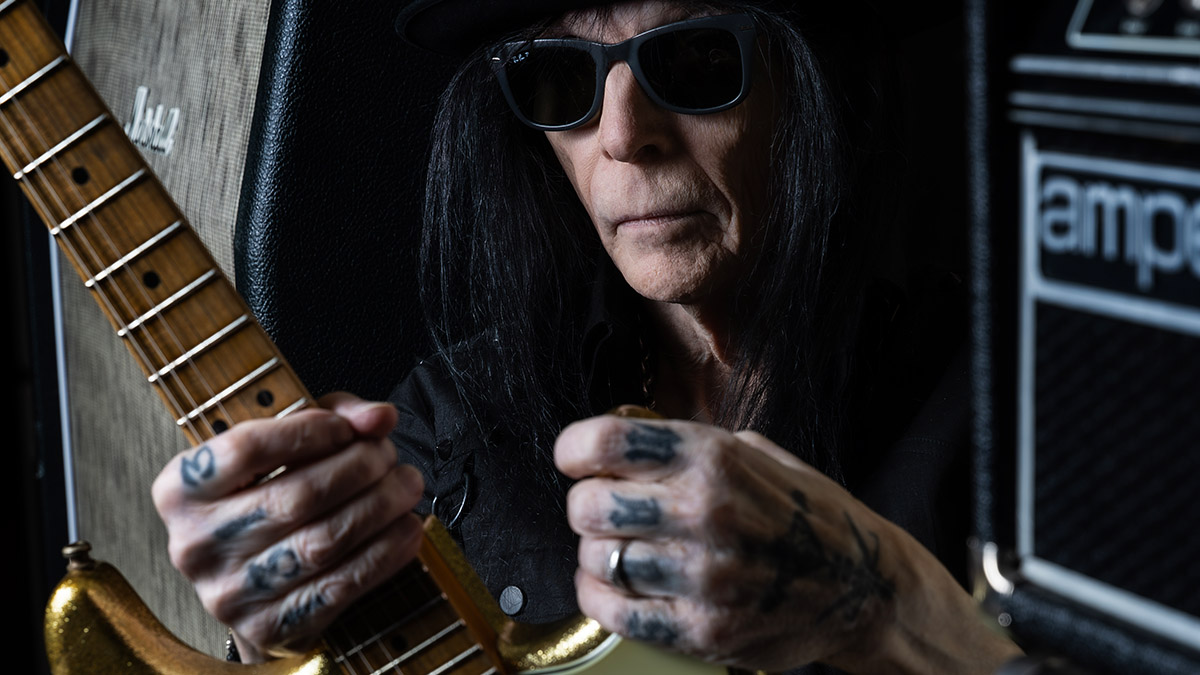
Every band has drama, but I get a real sense that at one point it all started to be too much for you and things weren’t so fun anymore. When was that?
“Well, there were a lot of times, but when I look back on it now, it’s almost comical – the atypical thing of what all the up-and-coming rock star people think rock ’n’ roll is about. It isn’t about heroin, it isn’t about drinking, and it isn’t about all that stuff that, granted, they did anyway. That isn’t part of it. The up-and-coming rock star should really concentrate on music.”
You’ve said that at a certain point the band didn’t really include you in the songwriting.
“I was kind of left out of the loop right around Generation Swine. I mean, I’d play solos on the songs, but as far as writing and playing a lot of the songs, it was different things, different people.
You’ve stated that you didn’t play a note on that album and that the band didn’t want your guitar to sound like a guitar. You’d play a part, only to see it erased and then played by somebody else.
“Yeah, unfortunately, they had a lot of my guitar parts… That was [co-producer] Scott Humphrey going, ‘It sounds like a guitar.’ I’m going, ‘Because it is.’ Erasing and taking stuff… I don’t know. That was the toughest time I had.”
Do you know who was playing guitar over your parts?
“John.”
John…?
“[One-time Crüe vocalist] Corabi. I don’t know who else could have. And I’m not accusing John; he just told me that he replaced my parts, and he felt like a dog. I was just completely devastated that it could happen. I think at the time they were trying to go in a different direction, but it’s not acceptable to me. Generation Swine was a removal of what Mötley Crüe was about.”
Did the band discuss any of this with you, like, “What sound are we going for, and how can we all get it together?”
“I would sit in a room with the tape for hours trying to get something that would never work, if you know what I mean. It’s like, the producer at the time would be like, ‘No, that’s not right. That’s not right.’ I didn’t know what else to do. I’m a guitar player. That’s what I do.”
You told Rolling Stone that you played “one lick” on 2000’s New Tattoo but you didn’t write any songs because you weren’t invited. Nikki maintains that you played all the guitars on the album.
“Well, I was invited and I played all the guitars. But I don’t remember writing any of them, even though I was told I wrote one of the songs.”
You’re credited as a writer on three songs.
“Right. I did play on that album. Was that after… I must’ve said it was after Generation Swine. Was New Tattoo before that or after?”
New Tattoo was afterward.
“You’re right. Not trying to be a liar. I did play the guitars on that particular album – all the guitars, rhythm and solos. But there was a different producer than on Generation Swine. I can’t remember his name [Editor’s note: It was Mike Clink]. After that was Saints of Los Angeles [2008], am I correct?”
Yes. What was the story on that album? Nikki said you were struggling to play your parts, and that the album is a mix of you and DJ Ashba, who was uncredited.
“DJ Ashba played all the guitar parts except for the solos.”
You were battling opiate addiction at that time. Is that right?
“At that time I was recovering, but it was more… Let me think about what year that album was. I mean, in 2004 and 2005 is when I got pretty addicted to opiates, and I wasn’t very… I was alone. This was during the last of New Tattoo. I had to have my guitar tech start driving me to the studio. I couldn’t move anymore.”
Was playing pretty tough at that point?
“Not really. The pain was… but I was filled with opiates. I didn’t have a problem playing. I had more of a problem not being addicted. [Laughs] It’s hard to explain, but let’s say I could tolerate it better by taking the crap I was taking. I wouldn’t have been able to do it without that crap. I was already addicted.”
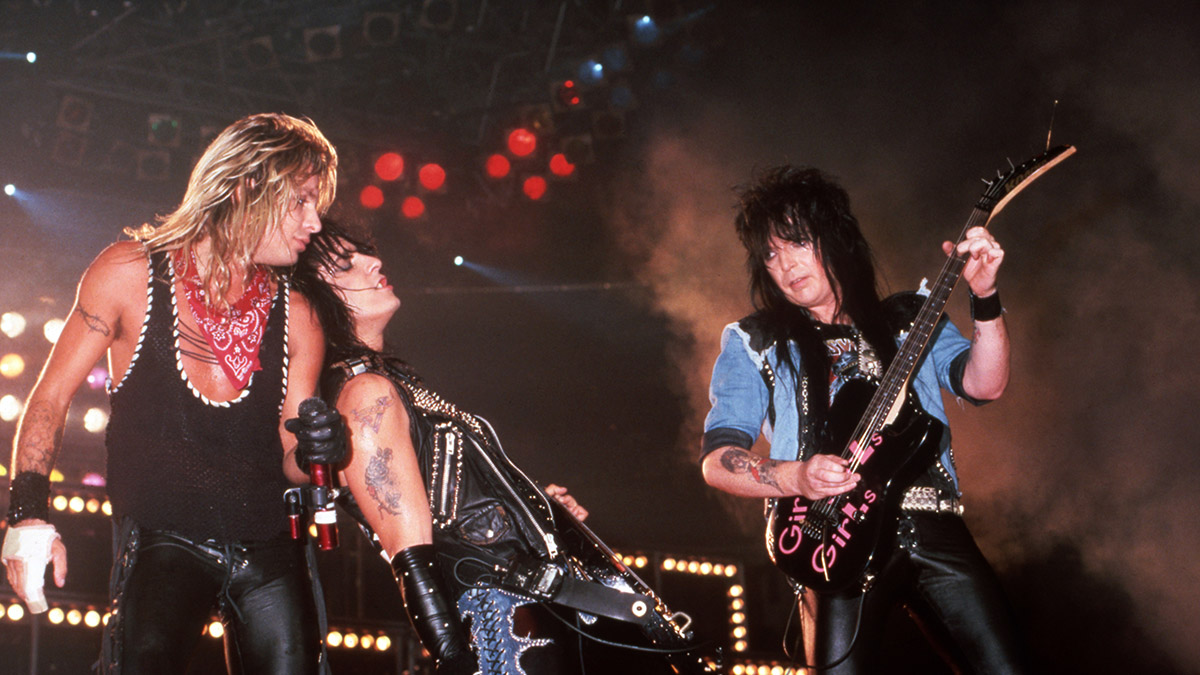
You were taking opiates to deal with your medical condition?
“Yes, for the AS. There were times when I would get up or try to stand up off the couch or get out of bed where my whole back would go into this big… You know when you get those charley horses in your calf? My whole back.”
We’ve talked about three albums that don’t sound like they were very much fun for you. Did you ever talk to the guys about ways to improve the situation?
“No, I never complained. Mötley Crüe was my life. It’s what I did. Whining is about… I tried to show a lot of strength, that I was determined to do this no matter what. Except for Generation Swine – I couldn’t get that one. [Laughs]’
In your view, should the band have stuck to their guns and quit touring after the “farewell” tour?
“Do you know what I was really thinking at that point when we signed that big huge contract thing and made a big deal of it and stuff? That Mötley actually were over touring. There was no mention about putting out a record again or anything else. I was into that.”
You were hoping the farewell tour really was the farewell tour?
“Yes. Yes. I actually thought it was like the farewell tour, because… bands are bands. They get into arguments, they get into this, they do this. Even the Stones, the Beatles, all of those people, man, it’s like eat, sleep and drink with the same people every day for 40 years. There can’t not be disagreements or seeing things differently.”
There’s been stories and speculation about the band potentially firing you back in the day. When did you hear any of that?
“1981.”
What was the circumstance?
“I don’t want to give a source for it because it would be a little bit too messed up for me to do that. He was a very famous singer in a band right around the same time we were.”
That was right around when the band formed. Did you hear those stories after that, through the years?
“I just heard about it maybe a year or so ago. Less than that…”
But while you were in the band?
“There were some… that happened… If you read Bob Daisley’s book [For Facts Sake, 2013], it was in 1984, and they were talking about replacing me. There’s a few other times that I heard of or read in a book or something.”
Did you just let that blow off your shoulders, or did you go to the band members, like, “What the fuck?”
“At that point, I was just going, ‘That won’t happen.’ I was determined – ‘No, no, I’m not going anywhere.’ It’s like, ‘You guys can hallucinate all you want, but I stand.’”
What was the last record you remember on which the band, including you, was happy and unified?
“It would be kind of a toss-up between… Dr. Feelgood felt pretty good. The Corabi album [1994’s Mötley Crüe] felt really comfortable to me, because everybody was… I guess that thing you feel when you first fall in love. And then when the thrill is gone, it’s like… you know.”
The thrill was definitely gone on Generation Swine, right?
“[Laughs] Generation Swine is like… I can’t say that I remotely enjoyed any minute of that. I was so distraught – you know, lost. No, I didn’t have fun.”
When we spoke during the 2005 tour, you seemed to be in decent spirits.
“Yeah, that’s when I started to go more, if I remember correctly, off opiates. That was better. I didn’t feel like I was the walking dead. You know how that stuff works. It’s like, ‘Oh, my God…’”
Do you miss being friends with those guys? Were you ever friends?
“Yeah, at one point. It’s like, I don’t hate anybody. In the band there’s a lot of stuff that I wasn’t particularly fond of that would happen through the years. Wiping your ass on my doorknob wasn’t exactly fun. That kind of stuff – lighting my doors on fire. And like I said, when I look back at it now, it’s kind of comical. But this happened, and it wasn’t funny at the time.”
Let’s circle back to your record. Do you plan to tour at all? You’ve said you probably wouldn’t do a real tour.
“It’s about the same as I said with Mötley. I’m not quitting, I’m just retiring from this amount. Touring is too much – I’m retiring from that. I’ll do a one-off if people really want to see me, or a residency three days out of five, wherever. As far as the extensive stuff you do with world touring and the major touring in the United States, buses and planes and trains and all that other stuff is a beating. It’s a beating.”
You could do a residency thing at that new Sphere in Las Vegas.
“That would be cool because it could make the whole sphere Mars.”
There you go. And your head could be as big as the sphere.
“Heck, no! My head will never get that big. [Laughs]”
You do live in Nashville. What about holding some sort of blues jam? I imagine a bunch of players in town would show up.
“We’re thinking along the same lines. I’d love to find some sort of speakeasy – a damp, dark cellar that we turn into a café. Players could show up, but they would need a password to get in. I’d love to do something like that.”
- The Other Side of Mars is out now via 1313 LLC.
Joe is a freelance journalist who has, over the past few decades, interviewed hundreds of guitarists for Guitar World, Guitar Player, MusicRadar and Classic Rock. He is also a former editor of Guitar World, contributing writer for Guitar Aficionado and VP of A&R for Island Records. He’s an enthusiastic guitarist, but he’s nowhere near the likes of the people he interviews. Surprisingly, his skills are more suited to the drums. If you need a drummer for your Beatles tribute band, look him up.

